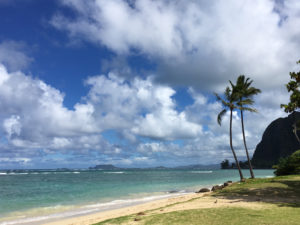Gathering of Indigenous Leaders in Hawaii [2016]
With support from the Trust for Mutual Understanding, the Altai Project was thrilled to be able bring two Indigenous leaders from Altai, Russia to attend the IUCN World Conservation Congress in Honolulu, Hawaii in September 2016.
Traveling from deep in the center of Eurasia to the Hawaiian Islands in the middle of the Pacific Ocean – a true study in contrasts, they were joined by a delegation of Indigenous leaders from around the world. It was a fascinating mix of people who, despite their diverse geographies, share many commonalities – pastoralist nomads, sacred landscapes, and ceremonial traditions. Most passionately portrayed was the deeply felt desire to fight to protect their lands and lifeways from the common threats of exploitative and unsustainable resource development, human rights violations, and habitat destruction.
Our representatives traveled to Hawaii to share their concerns about the impacts of uncontrolled tourism, recreation, and the threat of a pipeline and creation of a new road in the wilderness areas of their traditional and sacred landscapes. The two men, both shamans and community leaders in their own right, participated in a number of panels and discussions alongside other Indigenous leaders. With an audience made up primarily of policy-makers, NGO leaders, and institutional funders, it was an opportunity for stakeholders to learn more about the concerns and challenges faced by Indigenous peoples around the world.
In addition to our time spent at the Congress, the whole delegation visited native Hawaiian sacred sites on Oahu, Maui, and Kaho’olawe Islands with our Hawaiian hosts, sharing ceremony, strategy, and stories.
 Heading home to Altai, both leaders will incorporate these experiences, learnings, and connections into their community efforts, with a particular emphasis on strengthening self-governance and creating “No Go” zones where there are strict limits on human activity. Many in the delegation commented that they thought their peoples were facing these problems alone in their communities and that it was incredibly motivating to know that other indigenous peoples are fighting the same battles and sometimes winning or at the very least gaining ground and confidence. There are many intangible gains during international exchanges, but we know that they will put the experiences to work.
Heading home to Altai, both leaders will incorporate these experiences, learnings, and connections into their community efforts, with a particular emphasis on strengthening self-governance and creating “No Go” zones where there are strict limits on human activity. Many in the delegation commented that they thought their peoples were facing these problems alone in their communities and that it was incredibly motivating to know that other indigenous peoples are fighting the same battles and sometimes winning or at the very least gaining ground and confidence. There are many intangible gains during international exchanges, but we know that they will put the experiences to work.
To see more images from the trip, visit our gallery.
